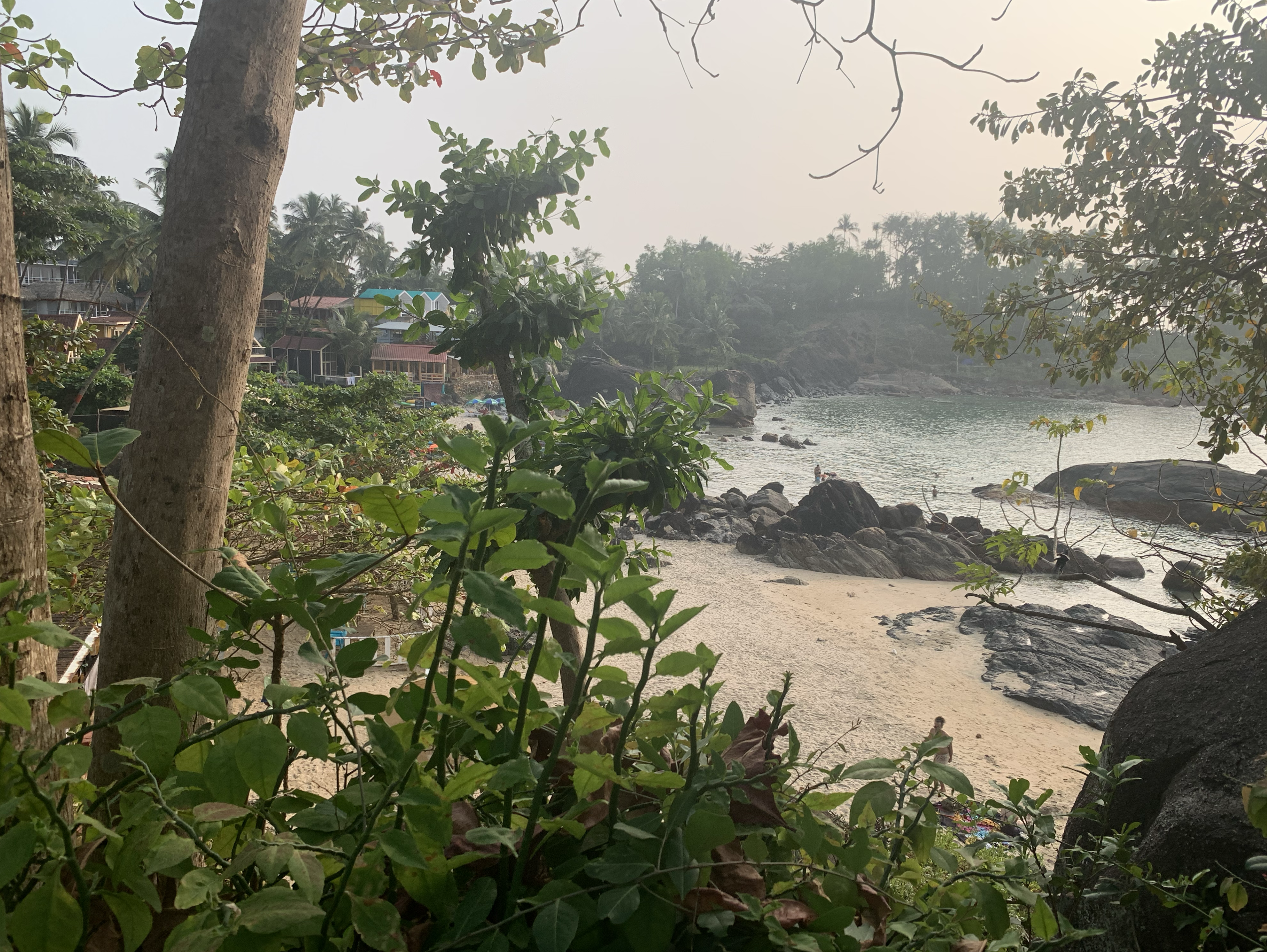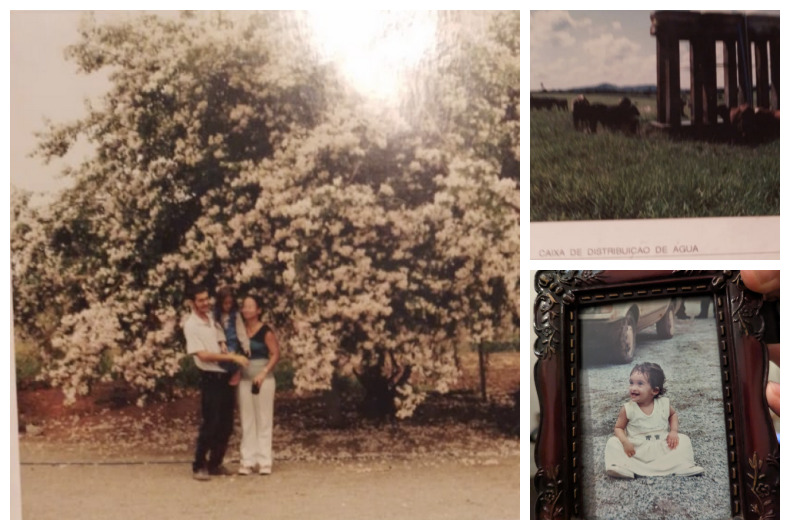The feelings that poverty bring me

I’m Brazilian. My mother comes from one of the poorest regions of the country and grew up in a family with other 12 siblings under a dollar a day. My father is the son of a wealthy farmer and quit school when he was 14. I was born when my parents were teens.
When I was a small child, I lived in my grandparent’s farm. My father worked in the farm as a peon while my mother kept herself occupied with the household. The household was the poorest hovel I have ever entered in my life, it was made of concrete bricks with clay tiles for a roof that allowed animals to creep in at night - that was always a preoccupation my mother had.
This house stood beside a towering red-dirt ravine. If one were to climb it, they would see a breathtaking field stretching out all the way to the shadows of a dark forest that always haunted me. Near the house, at the top of this ravine, stood a lone tree. From our backyard I’d sometimes watch my young father leaning against this tree. His shadow framed by the sunset-colored sky and the empty field, the air clear and fresh with the coming of evening. I knew I wasn’t welcome to join him while he stood there. The emotions I felt were too complex to be understood by a three years old, but they are some of the most beautifully melancholic and old memories I have.
The only therapist I ever had, many years later after listening to some parts of my story and very excited about her own insight, said that my early life sounded like a Dostoevsky novel - she was either very sadistic or never read Crime and Punishment. Poverty is one of the most devastating conditions that someone can be subjugated with. Poverty is often accompanied by vice and violence, which are also terrible aspects of human corruption. I don’t believe poverty is the only reason for the decay of humanity but it is definitely a strong culprit.
My family and I were poor and we continued to be poor for many years to come. In many occasions I could have died because I was poor. I was a sickly child and needed private health care, my parents didn’t have enough money to afford rent and buy food, I could have been forced to move in to a dangerous neighborhood where I’d risk getting shot every day. But that didn’t happen, I was saved. I didn’t even save myself. How could I? I was a child. I was saved by my father being intellectually gifted, by the wealth and kindness of my extended family and by the Brazilian social welfare system.
In early 2024 I accepted a research fellowship that brought me to India. I was supposed to fly straight to Bangalore and meet my team there. However, having spent my teenager years in the midst of the Brazilian psychedelic scene and being indoctrinated by Raja Ram and others that “for 10 million years all that human kind had as entertainment was people banging rocks together around the fire until Goa came along”. I was excited about the opportunity to visit the cradle of this musical style. For that reason, I flew in by myself a couple of weeks earlier to meet the trance gurus.
I was apprehensive about what I would find in India. I’ve read all about it in my development economics books, I watched the classes, I grew up in poverty. Still, none of this had prepared me for the depth and pervasiveness of poverty I experienced. Goa is India’s richest region. The tourists want to indulge in its white-sand beaches and party in the heartland of psytrance. There isn’t much luxury in the state, but there are definitely different levels of comfort one can seek. Nonetheless, there’s a shared experience to everyone that rides a car or goes to a restaurant by the beach or walk in the streets of its towns. My part in the shared experience left me feeling extremely anxious and deeply uneasy, so much so that I couldn’t enjoy nature or connect with people. As the days went by, my mind could only ruminate about how devastating poverty was to so many of the people around me and how unfair that was. I was happy to leave when I did.
Unfortunately, Bangalore felt no different to me. The stark contrast between an airport that reminiscence what I imagine Babylon’s Hanging Gardens must have looked like and the hardened people by the edge of the highway selling wild caught fish as cars zoomed by made me speechless. To enter the gated communities that are the only places provided with a reliable supply of water, power, and trash collection while strolling by neighborhoods with polluted lakes and mountains of trash that were higher than the houses in Berlin made me ashamed. To go to events in high luxury condominiums that overlooked slums as far as the eye could see made me angry.

I know poverty, but I think I know a different kind of poverty.
I can’t speak the language of the poorest people, I could only talk to workers in the tourism sector or my highly educated and privileged colleagues. I suffered violence, I thought a man was going to hit me, I suffered verbal abuse when alone in restaurants, stores and in the street. People lied to me and took advantage of my ignorance and goodwill. I felt absolutely disconnected and tired. There was too much suffering around me. I have never had a worse time while traveling before.
I know poverty, but I think I know a different kind of poverty.
In Brazil, I know all cultures. Because I came from a humble background but also had access to wealth and education I can be perfectly charming. I understand everything. I have family there, I have friends. I know what to say to the old lady living in the countryside and to the rich strolling in the local cultural center. I know where it’s safe to go and what are the areas I should avoid. I know how to trust.
Months after completing my trip, I look back and I see the beauty in India. Just like I saw the beauty in my childhood’s farm. I look forward to go back to India now that I understand its reality more deeply. I can’t wait to explore the worshiping, the diversity, and take part in the respect for the traditions, to wear their colors and trinkets, to live in community and to share the pride of living in the cradle of Goa, the refuge of Tibettan Buddhism and the biggest democracy in the world.
I thought I knew poverty, but I know a different kind of poverty and that is Brazilian’s. In India, I’m deaf, I’m mute and I have no memory. In that sense I feel like I’m just like you, my average reader, are about all kinds of poverty.
Even though my emotions overwhelmed me and they weren’t in accordance to who I want to be, I can always bootstrap my virtues through rationality.
India: if the Uttar Pradesh region was a country, it would have the highest rates of death in infancy in the world.
India: occupies the second place in the global inequality rank.
India: 45% of its population is living under 3.65$ a day and 22% is under the poverty line.
Poverty doesn’t have to be devastating, but it will continue to be for many years for billions of people if you don’t do anything about it. Institutions like Give Directly will donate 90% of donations to people they’ve identified need the most. Give well does a lot of research on how to spend donations the most effective way to save the most amount of lives possible. R.I.C.E institutes a program in Uttar Pradesh that saves newborn infants lives.
